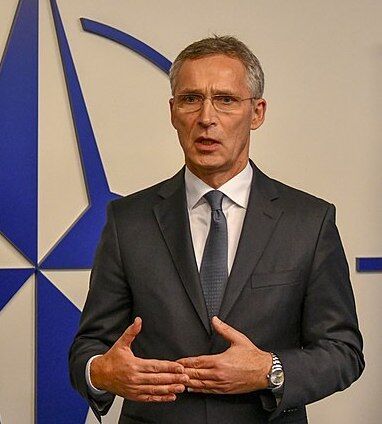NATO Chief Criticizes Russian Invasion of Ukraine as Mercenary Mutiny Unfolds
NATO Secretary-General Jens Stoltenberg voiced his concerns on Monday over the recent mutiny by mercenary troops in Russia, highlighting it as evidence of Russian President Vladimir Putin's misguided actions in invading Ukraine. Speaking during a visit to Lithuania, where the upcoming NATO summit will take place, Stoltenberg referred to the failed revolt by the Wagner group against the Kremlin. With NATO and EU member states reinforcing their support for Ukraine, the focus remains on stabilizing the region and addressing the complexities arising from Russia's actions.
NATO Secretary-General Jens Stoltenberg voiced his concerns on Monday over the recent mutiny by mercenary troops in Russia, highlighting it as evidence of Russian President Vladimir Putin's misguided actions in invading Ukraine. Speaking during a visit to Lithuania, where the upcoming NATO summit will take place, Stoltenberg referred to the failed revolt by the Wagner group against the Kremlin.
While addressing reporters, Stoltenberg emphasized that the events in Russia were an internal matter but also reflected the strategic error committed by President Putin through the illegal annexation of Crimea and the war against Ukraine. Stoltenberg further stated that NATO was closely monitoring the situation in Belarus, particularly after Russia's recent deployment of nuclear ammunition there. Expressing condemnation, Stoltenberg criticized Russia's announcement of deploying nuclear weapons, deeming it reckless and irresponsible.
Although he did not see any indication of Russia preparing to use nuclear weapons, Stoltenberg emphasized the importance of NATO's vigilance. The failed mutiny by the Wagner group serves as a demonstration that Russia's war in Ukraine is eroding its internal power, warned Josep Borrell, the European Union's top diplomat. Speaking to the bloc's foreign ministers, Borrell underscored the risk of instability within the nuclear-armed country.
He stressed the need for increased support to Ukraine, considering the ongoing developments in Russia. Borrell expressed concern over the possibility of Russia, as a nuclear power, entering a phase of instability. He described the situation as the "monster" of Wagner, which was created by Putin, turning against its creator. Borrell cautioned that the Russian political system was revealing vulnerabilities, and its military power was cracking under pressure.
Meanwhile, Russia's Foreign Minister Sergei Lavrov stated that the Wagner group would continue its operations in Mali and the Central African Republic despite the recent uprising. Lavrov mentioned that Wagner members were working as instructors in those countries, as Europe, especially France, had allegedly abandoned them. Lavrov emphasized the role of Wagner in providing military instructors and ensuring the leaders' security upon the request of these African nations. In response to the rebellion, the Wagner group's headquarters confirmed that it was operating normally and expressed gratitude to its supporters.
The fall-out from the uprising was being discussed by EU foreign ministers during their meeting in Luxembourg. Foreign Minister Annalena Baerbock of Germany characterized the events as a domestic power struggle in Russia and stressed that they would not intervene. French Foreign Minister Catherine Colonna acknowledged the fractures and fault lines within the Russian system exposed by the recent tensions. However, she emphasized the EU's cautious approach, avoiding interference in Russia's internal affairs.
Lithuania's Foreign Minister Gabrielius Landsbergis urged the West to remain focused on supporting Ukraine, urging against distractions and regime change discussions. During the Luxembourg meeting, the foreign ministers formally approved allocating an additional €3.5 billion ($3.8 billion) to the fund used to arm Ukraine. However, Hungary currently blocks the allocation of an additional €500 million specifically for covering the costs of weapons sent to Kyiv from the joint fund. Since Russia's invasion of Ukraine last February, the EU's 27 member states have already committed €3.6 billion from the shared European Peace facility to equip Ukraine's military.
In a positive development for Ukraine, its forces recaptured the settlement of Rivnopil in the Donetsk region, previously held by Russian forces. The military announced the successful liberation, with soldiers proudly posing with the national flag in front of a ruined cottage, symbolizing progress in their ongoing efforts. As the situation in Russia continues to unfold, the international community remains attentive to the consequences of the Ukrainian conflict and its impact on Russian domestic dynamics. With NATO and EU member states reinforcing their support for Ukraine, the focus remains on stabilizing the region and addressing the complexities arising from Russia's actions.




